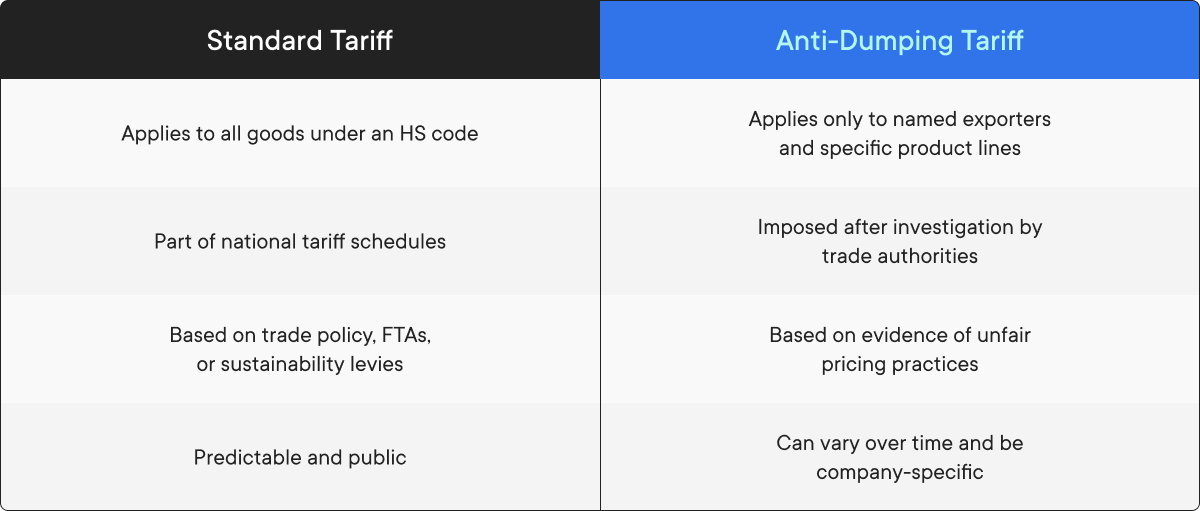Close Cookie Popup
Cookie Settings
By clicking “Accept”, you agree to the storing of cookies on your device to improve our services and your browsing experience.
As global trade becomes increasingly regulated, understanding the nuances of anti-dumping tariffs is critical. Confusion around these duties is common, with many businesses mistakenly assuming they apply across all suppliers and countries under a given HS code. This article aims to clarify what anti-dumping tariffs are, how they differ from standard import duties, and how we ensure full compliance and transparency in this space.
Anti-dumping tariffs are special duties imposed by a country’s trade authority when a foreign supplier is found to be “dumping” products—that is, selling them below fair market value or below their cost of production. This practice can harm domestic industries, prompting governments to intervene with corrective duties.
These tariffs are not broad-based, like standard import duties determined by HS codes. Instead, they are:

Anti-dumping duties are often misunderstood, leading to costly missteps in procurement and customs planning. Let’s clear up a few common myths:
Myth: Anti-dumping tariffs apply to all goods under an HS code.
Fact: They only apply to specific companies and countries under investigation.
For example: HS 3923.21 plastic bags from Supplier A in Country X may face anti-dumping duties. The same product from Supplier B or a different country may not.
Myth: There’s no way to verify if a supplier is impacted.
Fact: Trade authorities maintain public lists and publish investigation outcomes.
Myth: All low-cost imports are subject to anti-dumping tariffs.
Fact: Only those proven to be sold below fair value after a formal investigation.
Before finalising any cross-border procurement, it’s important to verify whether the product—or the supplier—is subject to anti-dumping measures. Here’s how:
At Grounded Packaging, we are committed to ethical sourcing and full trade compliance. We have never been subject to anti-dumping tariffs, and we take rigorous steps to ensure all our packaging materials are sourced responsibly from vetted suppliers.
If you’re navigating complex import duties or unsure whether your product classifications expose you to anti-dumping risk, Grounded is here to help. Our team of experts can guide you through:
Our companion guide explains everything you need to know, from structure and lookup tools to tariff strategies for sustainable packaging.